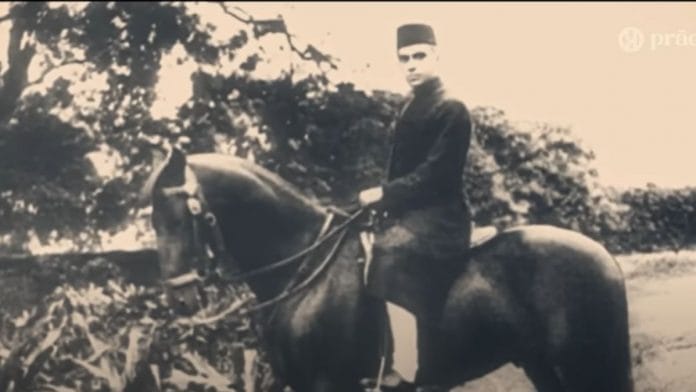Sahebs Who Never Left dives into the British Raj’s most enduring leftovers, some call them liberals. The first part of the 10-part YouTube series caters to the dominant political narrative in a confused and almost laughable manner.
This project promises to reveal the “dark truth about some of the most significant events of the colonial period in India and the deliberately hidden facts about the ‘ideological subversion’ of Indian people”.
Very early on in the film, Jawaharlal Nehru is shown sipping champagne at the Viceroy’s house during the Hindu-Muslim riots in 1947. The screen fills with flames, piles of dead bodies are depicted, which are then juxtaposed against Nehru politely chatting with Lord Mountbatten and raising a toast – “To King George VI,” he says.
The title of the film is introduced as black and white photographs of many ‘Sahebs’ emerge on the screen. But it is difficult to deduce the connotation behind the ‘brown saheb’. Is it the colour of one’s skin, gender, or ideology that defines them? Director Praveen Chaturvedi, too, seems to be unsure.
From Winston Churchill and Lord Mountbatten, to Arundhati Roy and Amartya Sen — all are painted as Sahebs, who have spread their net wide, across generations and geographical spaces.
“You won’t know about this history of India,” reads the title on YouTube, where the first part is available. It implies that there are many versions of history. Intentionally or not, perhaps Chaturvedi is telling us that he too is trying to build his own.
Also read: Yashoda is a Samantha Ruth Prabhu show and there is no taking away from it
Ideological subversion
The narrator takes on the daunting task of relaying India’s history within 30 minutes in the first episode. The crash course begins from Sher Shah Suri’s rule. The documentary shows that Hindus convinced themselves at the time that living as second class citizens was better than not living at all. “Ideas like the Ramrajya were forgotten memories in the public mind,” the narrator says wistfully.
There is a term which is repeated constantly that gives the film what it needs to serve as a product of research: ‘Ideological subversion’. It attempts to show how Hindu society has been attacked by, a ‘Marxist psychological warfare tool’ . The filmmaker claims that the KGB used this ‘horrific method’ to spread Communist ideology through the Soviet Union.
Chaturvedi uses experts to layer this narrative and give more credence to this point of view. It is a narrative that is getting stronger and stronger in the minds of a section of people. By adding a heavy term like ‘ideological subversion’ into the mix, it will presumably gain more credence. To then further assemble it as a series of threads being woven together for the first time is another intelligent move on Praveen Chaturvedi’s part.
The ‘experts’ who punctuate the documentary with their analyses include Neeraj Atri, president of the National Centre of Historical Research and Comparative Studies in Chandigarh and author of Brainwashed Republic. Sandeep Balakrishna, founder of the Dharma Dispatch, a website on Hindu history and culture also features in Sahebs Who Never Left along with Aabhas Maldahiyar, author of #Modi Again: An ex-Communists’ manifesto.
Also read: Wakanda Forever ensures Black Panther won’t become alien to fans. Take that, Captain America
Many voices, one perspective
According to the film, the assault on Hindus has been structured by four stages of subversion. Through ‘demoralisation’, ‘destabilisation’ and ‘crisis’ of the Hindu identity, a set of oppressive values and practices that have been ‘normalised’, especially through Nehru, who is described as a British stooge.
The director should have been able to convince his audience with ease considering the current climate but he fails. There is something almost laughable about the seriousness with which such an extremist and over-the-top perspective is being handed to the viewer by the filmmaker. On the surface, there are many voices, but the perspective is only one.
The melodramatic retelling of history that situates Arundhati Roy and Winston Churchill as belonging to the same group is not convincing.
(Edited by Ratan Priya)






